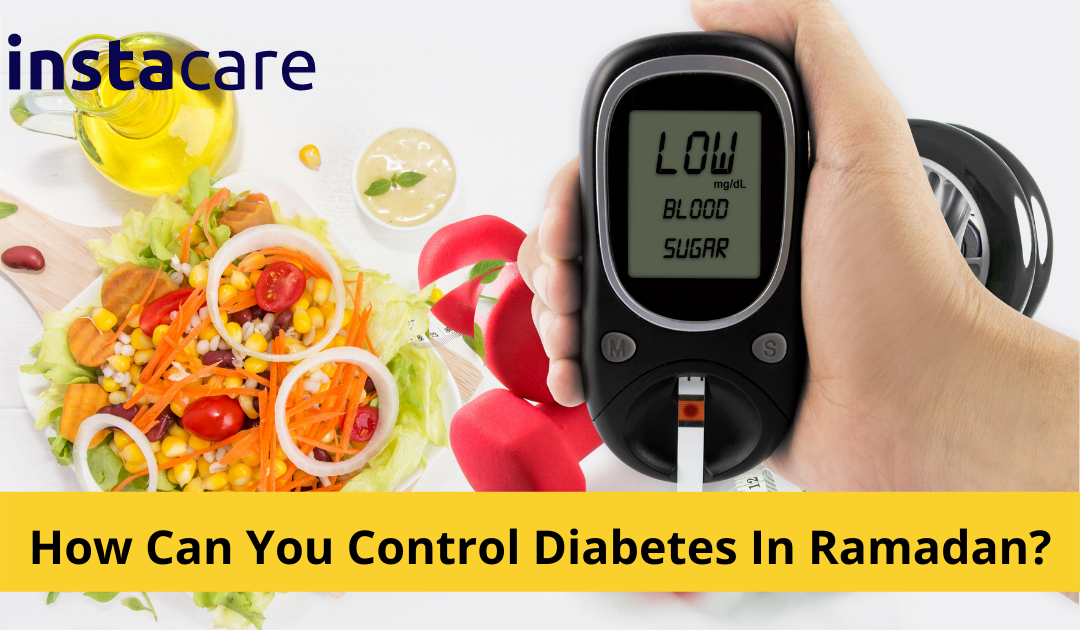During Ramadan whih is the holiest month of the Islamic schedule, many Muslims center around otherworldliness, self-restraint, empathy, and appreciation. They additionally swear off all food and drink from dawn to nightfall.
Ramadan is the holy month in which fasting is obligatory for every Muslim with good health. And there is an exception for the people who have health issues, women who are pregnant or breastfeeding, etc. Fasting with diabetes is questionable as some people are okay with fasting through the day, yet some find to pass it. If you are one of those faithful people who wish to fast during Ramadan, remember that special care is required to ensure your health isn't risked with it.
The First Thing Is To Check Your Risk Levels
Fasting, abstaining from utilizing meds, insulin, and drinking water will influence your blood glucose levels (BGL). It can prompt potential dangers, including high BGL (hyperglycemia), low BGL (hypoglycemia or hypo), parchedness, blood clumps, and diabetic ketoacidosis (DKA).
Ramadan is not about causing hardship to people, so if you have type 1 diabetes and diabetes management during Ramadan is unstable, you should skip fasting.
But if you are suffering from type 2 diabetes and have reasonable control over the situation, you can perform fast with your personal decision.
Be Prepared Beforehand Discuss Your Medicine Schedule With Your Doctor
A pre-Ramadan appraisal is a chance to survey your blood pressure, BGL, and fats concentration, learn of any likely dangers of fasting, talk about observing and how to treat a hypo or oversee high BGL, and endorse any Ramadan-explicit changes in the portion as well as the timing of your prescription or insulin system.
View More: What Should I Eat During Ramazan
In the case of “hypo," a health-related crisis, the treatment implies you should break your fast before time. Visiting your doctor to change your insulin system before you start fasting can assist you with keeping away from this. Never quit taking your insulin or your diabetes prescriptions. Talk with your diabetes specialist or medical attendant about changing the time and portion during Ramadan.
Keep A Balance Check On BGLs On Regular Basis
During Ramadan, checking your BGL as often as possible is advised, especially assuming you take insulin or are on any sulfonylureas.
The Diabetes and Ramadan International Alliance affirms that pricking the skin for blood glucose testing doesn't negate the quick.
Security tip: If you feel unwell during Ramadan, look at your BGL and be ready to break the quick to treat a hypo (BGL under 4mmol/L) - or oversee hyperglycemia (BGL more than 15mmol/L).
Put Special Care On Your Diet During Ramadan
During Ramadan, your Dietary patterns will be impacted by lengthy gaps among dinners and devouring after iftar, which can prompt more significant swings in blood glucose levels. Great nourishment is exceptionally substantial as of now, and keeping an intelligent dieting plan will assist you with trying not to indulge in starches and greasy food sources at Iftar Meal.
A general meal plan for you to follow;
- Let your Suhoor meal be the biggest one
- Incorporate complex sugars, for example, multigrain/wholegrain, sourdough bread, porridge, oats, wheat, grain, semolina, and buckwheat to give you manageable energy over the day
- Incorporate protein-rich food varieties like lean meat, poultry, fish, eggs, dairy items, seeds, nuts, beans, vegetables, and tofu
- Drink a lot of liquids, and pick liquid-rich food varieties to ensure you are all around hydrated for the afternoon.
Make Sure To Elevate Your Exercise Levels
Exercise is the most required to keep diabetes in control. If you can not do full workout sessions during Ramadan, make sure that you stay active;
- Light exercises are suggested, like strolling or bicycling.
- Tarawih’s prayer exercises of bowing, stooping, and rising should be viewed as a component of a regular workout session.
- Intense activity isn't prescribed during fasting because of low glucose or parchedness.
Summing Up
I hope this article helps you control your diabetes during Ramadan. Tell us about your experience in the comment section. Ramadan Kareem!
Please book an appointment with the Best Diabetologist in Lahore, Karachi, Islamabad, and all major cities of Pakistan through InstaCare, or call our helpline at 03100002273 to find a verified doctor for your disease.








